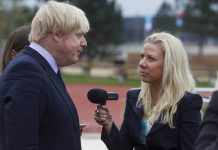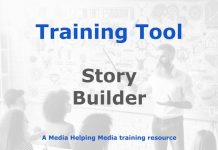
Journalism demands a diverse skill set across various roles. Explore the different tasks and career paths available to modern journalists in our guide.
Journalists are the chroniclers of our time, acting as vital conduits of information in an ever-evolving media landscape. They go beyond simply reporting facts; they contextualize, analyse, and hold power accountable. Here’s a more comprehensive look at their diverse roles:
Core Functions and Processes:
- Newsgathering and verification:
- This extends beyond simple note-taking. It involves rigorous research, source vetting, cross-referencing, and the use of investigative techniques.
- Journalists employ diverse methods: interviews, document analysis, data mining, observation, and participation in events.
- Verification is paramount, especially in the age of misinformation. Journalists must adhere to strict ethical guidelines to ensure accuracy and fairness.
- Storytelling and presentation:
- Journalists are skilled storytellers, adapting their narratives to various platforms (print, broadcast, digital, social).
- They use diverse formats: news reports, features, investigative pieces, documentaries, podcasts, and multimedia presentations.
- They must consider their audience, tailoring their language and style for clarity and engagement.
- Multimedia production:
- Beyond basic photography and video, journalists now use sophisticated tools for data visualisation, interactive graphics, and immersive storytelling (e.g., virtual reality).
- They often possess skills in audio and video editing, graphic design, and web development.
- Audience engagement and community building:
- Modern journalism emphasises interaction with the audience. Journalists engage in social media, host online forums, and participate in community events.
- They seek feedback, address concerns, and foster a sense of dialogue.
Journalistic roles and specialisms:
- Reporters:
- General assignment reporters cover a wide range of stories, while beat reporters develop expertise in specific areas.
- Investigative reporters conduct in-depth investigations, often uncovering wrongdoing or corruption.
- Correspondents:
- Foreign correspondents report from overseas locations, providing firsthand accounts of international events.
- Domestic correspondents cover national or regional news from locations outside of the main news organisations home location.
- Editors:
- News editors manage the daily news cycle, assigning stories, and ensuring accuracy and timeliness.
- Managing editors oversee the overall news operation.
- Copy editors focus on grammar, style, and factual accuracy.
- Sub-editors check the work submitted by reporters to ensure it is grammatically, factually and stylistically correct.
- Forward planning editor:
- They are responsible for planning the production of original, in-depth journalism. They plan beyond the next day to the following week, month, and year.
- Online editors:
- They are responsible for the online presence of the news organisation, including website content, social media, and multimedia.
- They analyse web traffic and engage with online audiences.
- Producers:
- Broadcast producers manage the production of news and current affairs programmes, coordinating talent, scheduling, and technical aspects.
- Assistant producers:
- They are junior to producers and help with research, contacting guests, organising logistics, and making sure the reporters and correspondents have what they need to cover stories.
- Podcast producers:
- They are responsible for all aspects of podcast creation.
- Columnists and commentators:
- They offer analysis, opinion, and commentary on current events.
- Critics:
- They provide reviews and evaluations of art, culture, and entertainment.
- Guest bookers:
- They are responsible for arranging for guest to appear on news bulletins and in news and current affairs programmes. They are usually seasoned journalist with wide experience and good contacts.
- Data journalists:
- They use data analysis and visualisation to uncover trends, identify patterns, and tell stories.
- Photojournalists and videographers:
- They capture visual narratives that complement or stand alone as news stories.
- Fact-checkers:
- They verify claims made by public figures and organizations, combating misinformation.
- Social media editors:
- They manage and curate the news organisations social media presence.
- Audience engagement editors:
- They focus on building and maintaining relationships with the audience.
- Newsletter editors:
- They produce and manage email newsletters.
Ethical considerations and societal impact:
- The Fourth Estate:
- Journalists play a crucial role in holding power accountable, acting as a check on government and other institutions.
- They strive to provide balanced and impartial reporting, even in the face of pressure or criticism.
- Giving voice to the voiceless:
- Journalists have a responsibility to amplify marginalized voices and shed light on social injustices.
- Combating misinformation:
- In the digital age, journalists are on the front lines of combating misinformation and disinformation.
- Maintaining public trust:
- Journalists must adhere to high ethical standards to maintain public trust and credibility.
- Adapting to the digital age:
- Journalists must continually adapt to new technologies and platforms, while maintaining their core values.
Motivations and challenges:
- Journalists are driven by a passion for truth, a desire to inform, and a commitment to public service.
- They face challenges such as time constraints, resource limitations, and threats to their safety.
- The rise of citizen journalism, and AI-generated content also adds challenges to the journalistic profession.
These are just some of the many journalistic roles that exist in the news environment. Anyone starting off in a career in journalism should look at all the option before deciding which is the best fit for their character, experience and knowledge.








